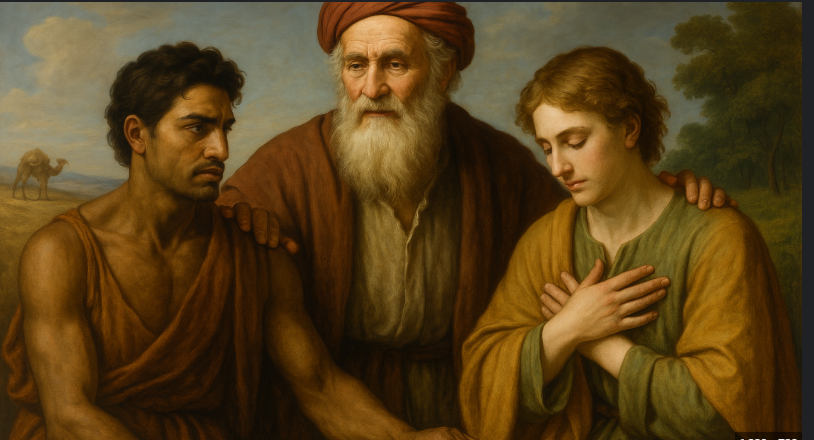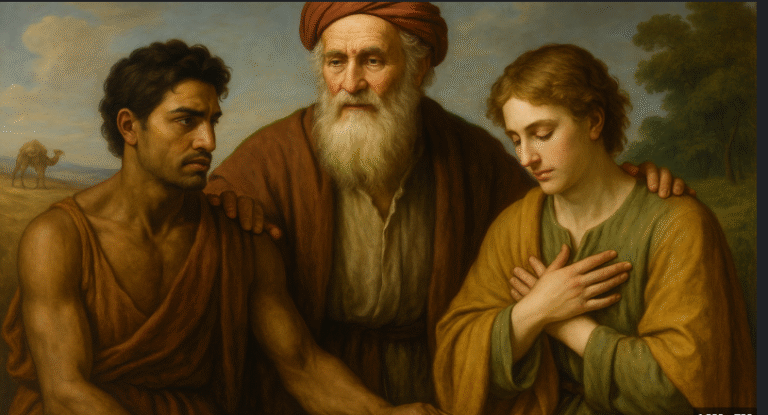What is the True Meaning of Spirituality?
The word spirituality comes from the Latin word spiritus, which means “breath” or “life.” Just as breath is essential to life, spirituality can be thought of as the essence that gives depth and vitality to our existence. Spirituality isn’t confined to any single definition; rather, it’s an inner journey that’s unique to each person.
At its heart, spirituality is about connection, purpose, and finding meaning. This can manifest through a variety of practices, experiences, or simply a mindset. Spirituality is often an individual exploration that encourages people to reflect on universal themes like love, compassion, altruism, wisdom, and truth. It is not limited to religious beliefs and doesn’t require a particular doctrine or community. Instead, spirituality is highly personal and adaptable, allowing each person to find their own path to understanding life and the world around them.
How is Spirituality Different from Religion?
While spirituality and religion are often linked, they are not the same. Religion typically involves a structured set of beliefs, practices, and rituals shared by a community or group. Religions offer guidelines, traditions, and sometimes a shared history that unite followers in their beliefs about life’s ultimate questions.
Spirituality, on the other hand, is less about organized doctrine and more about personal experience. You can be spiritual without belonging to a specific religion or following organized practices. Spirituality allows a person to explore their own beliefs and practices—such as meditation, prayer, or connecting with nature—in a way that feels authentic and meaningful to them.
In short, while religion often provides an external framework, spirituality is about personal experience, growth, and finding one’s own path to inner peace and understanding.
Expressions of Spirituality
There are countless ways to express and experience spirituality. For some, it may involve traditional practices like meditation or prayer; for others, spirituality might mean something entirely different. Here are some common expressions of spirituality that people find meaningful:
- Meditation: Quieting the mind to connect with a deeper sense of self and awareness.
- Prayer: Communicating with a higher power or seeking guidance and support.
- Mindfulness: Cultivating awareness of the present moment and fully experiencing life as it unfolds.
- Yoga: Combining physical movement, breath, and meditation to foster inner balance and harmony.
- Dance: Using movement as a form of expression and connection to one’s inner self.
- Creating Art or Music: Expressing the intangible feelings, thoughts, and energies that can’t always be put into words.
- Being in Nature: Finding peace, inspiration, and a sense of unity with the natural world.
- Breathwork: Engaging in focused breathing exercises that bring calm, clarity, and connection.
These practices are just a few examples of how people can connect with their spiritual selves. Each practice can be deeply personal and meaningful, helping individuals to cultivate inner peace, awareness, and connection to something beyond themselves.
The Purpose of Spirituality
The purpose of spirituality is, at its core, to provide a sense of meaning, purpose, and connection. Many people embark on a spiritual journey because they feel there is more to life than physical experience and material success. Spirituality can offer:
- A Sense of Purpose
Spirituality often gives people a reason to wake up every day, a purpose that goes beyond just surviving. It may involve living in alignment with one’s values, seeking to serve others, or contributing positively to the world. - Perspective on Life
Through spirituality, individuals often find a broader perspective. Spiritual practices can help people view challenges as part of a larger journey, providing comfort, resilience, and wisdom. - Connection to Self and Others
Many spiritual practices encourage self-reflection and self-understanding. In understanding oneself, it often becomes easier to empathize with others and feel connected to humanity as a whole. - Inner Peace and Fulfillment
The sense of peace that comes from spirituality can be transformative. Unlike external achievements or possessions, the peace that comes from spiritual growth is often long-lasting, providing fulfillment that endures through life’s ups and downs. - Exploration of Universal Themes
Spirituality enables people to engage with profound, universal themes such as love, compassion, wisdom, truth, and the mysteries of life and death. These explorations can help guide moral decisions and personal growth.
Is Spirituality Related to the Soul?
For many, spirituality is indeed connected to the soul, which can be thought of as the essence or core of who we are. The soul represents the part of us that is beyond the physical—a timeless, formless presence that reflects our truest self.
Spirituality is often the pursuit of understanding or connecting with this part of oneself. By engaging in spiritual practices, people feel they’re nourishing their soul, gaining insight into their deepest desires and values. This can lead to a profound sense of fulfillment and understanding, as the soul is seen as a guide for living authentically.
How Does Spirituality Begin?
Spirituality can begin in many ways. For some, it’s a gradual awakening—a sense that life has more depth or mystery than what meets the eye. For others, a life-changing experience like loss, illness, or a major transition can spark a search for answers and meaning beyond the ordinary.
Beginners may start exploring spirituality by:
- Practicing mindfulness or meditation to connect with their inner thoughts and emotions.
- Spending time in nature, noticing the interconnectedness of all living things.
- Reading spiritual books or listening to talks by spiritual teachers.
- Engaging in creative activities that feel meaningful or expressive.
- Seeking community with others who are on a similar path.
Starting a spiritual journey doesn’t require a major overhaul of one’s life. Simple practices like mindful breathing, quiet reflection, or even journaling can open doors to deeper spiritual insights over time.
Why is Spirituality Important?
In today’s world, where stress, competition, and material concerns often take precedence, spirituality offers a refreshing and necessary counterbalance. It invites us to look beyond immediate concerns, encouraging a mindset that prioritizes peace, purpose, and compassion. Here are a few reasons spirituality is important:
- Enhanced Well-Being: Spirituality can improve mental and emotional health, leading to lower stress, increased resilience, and greater happiness.
- Stronger Relationships: By cultivating qualities like empathy, patience, and understanding, spirituality can lead to stronger and more meaningful connections with others.
- Guidance Through Challenges: Spirituality provides tools for coping with life’s difficulties, giving people a sense of purpose even in times of adversity.
- Sustainable Fulfillment: Unlike the fleeting happiness that comes from external accomplishments, spirituality offers a lasting, deeper fulfillment that doesn’t depend on external factors.














